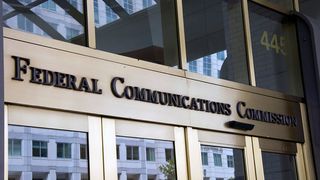FCC: Mobile Wireless Market Is Competitive

The FCC has concluded that there is effective competition in the mobile wireless marketplace, which has led to lower prices, higher quality service and innovation.
That was the finding of the FCC's latest (20th) annual report on the state of competition in the mobile wireless market. Previous reports under Democratic chairs had not reached that conclusion.
But FCC chair Ajit Pai said that for those who would impose more regulation on the wireless marketplace, effective competition had been an inconvenient truth that was discounted or ignored.
The FCC's Wireless Bureau, which presented the item at the FCC's Sept. 26 public meeting, said that, unlike some prior reports, the bureau simply looked at competition in the provision of service, rather than analyzing the "broader mobile wireless ecosystem."
The bureau says it based that competitive finding on, among other things, increasing output, falling prices and investment by service providers. "The 20th report concludes that competition "continues to play," which suggests that it has been competitive--"an essential role in the mobile wireless marketplace."
Democratic commissioner Mignon Clyburn dissented from the report and blasted the conclusion as a myopic view of the market used to justify the rollback of Title II.
"I can neither understand nor condone why the majority used a truncated analysis used to reach this conclusion," she said in her meeting statement. "For one, the discussion of investment in the mobile wireless services industry is fundamentally flawed. By highlighting a decrease in investment between 2015 and 2016, this section was clearly written to support the false narrative that the 2015 Open Internet Order deterred wireless carriers from investing in their networks.
"This is like a doctor looking at one organ and pronouncing a patient fit as a fiddle," she continued. "I am grateful, at least, that this item is being voted by the full commission so that I can vociferously declare my dissent and express my profound disappointment in the findings expressed therein."
Broadcasting & Cable Newsletter
The smarter way to stay on top of broadcasting and cable industry. Sign up below
Republican commissioner Michael O'Rielly saw it quite differently. He said providers are vigorously fighting it out for market share and noted he was glad that, after eight years, the FCC has returned to drawing a simple conclusion about competitiveness, adding, "It is clear that the mobile sector is competitive."
O'Rielly said that doesn't mean there isn't room for improvement. He dismissed the notion that a finding of competition means the FCC won't work hard to boost deployment.
"Just because a report finds there is competition or that industry participants are doing a good job does not mean we all get to go home," he said.
He also praised Pai for "righting a procedural wrong" by having the commission vote on the report, which was not the case for prior reports under previous chair Tom Wheeler; reports were issued at the bureau level over the objections of Pai and other Republican commissioners.
New commissioner Brendan Carr said the facts make it "abundantly clear" that it is a competitive market and that, unlike other reports, it is not being used to stake out ground on other policy debates.
Commissioner Jessica Rosenworcel dissented, saying the report had a "fatal flaw": It did not define effective competition, instead offering apologies and admissions, like there is no single standard.
She called the agency's failure to define what it said had been achieved "inexcusable." An "I know it when I see it" standard is not good enough, she added.
Contributing editor John Eggerton has been an editor and/or writer on media regulation, legislation and policy for over four decades, including covering the FCC, FTC, Congress, the major media trade associations, and the federal courts. In addition to Multichannel News and Broadcasting + Cable, his work has appeared in Radio World, TV Technology, TV Fax, This Week in Consumer Electronics, Variety and the Encyclopedia Britannica.

